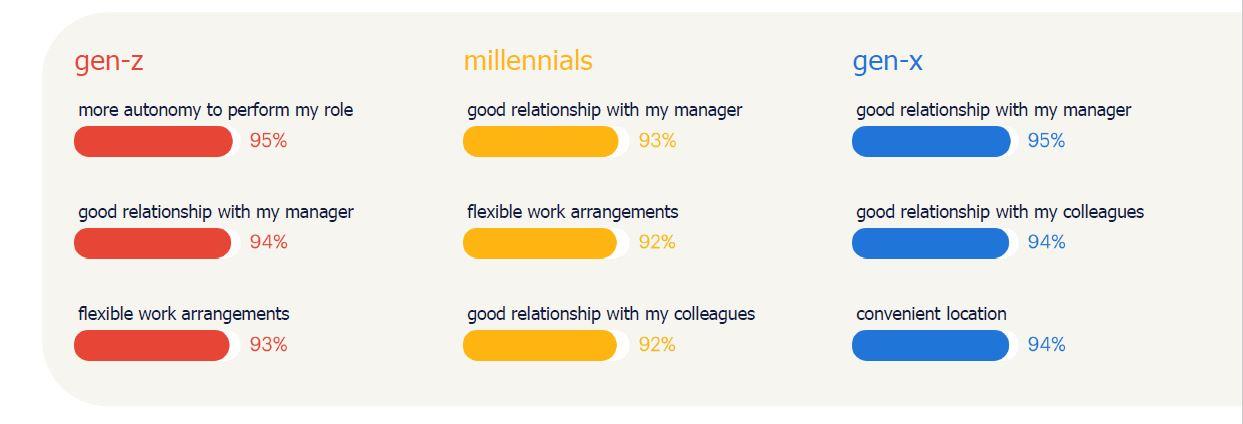share on
In fact, an equal share (94%) of workers surveyed value a good relationship with colleagues as well as with their managers as a top non-monetary benefit.
Employees surveyed in Singapore have said they are looking beyond financial benefits in firms they choose to work in, according to Randstad Singapore's Employer Brand Research report.
Further, 57% of respondents placed importance on employers that actively support equity, diversity, and inclusion (ED&I), and 21% would rather be unemployed than work for an employer that does not align with their personal values. At the same time, more than four in 10 (44%) find it important to work for a company that offers mental health and wellbeing benefits.
The survey, conducted in January, involved more than 163,000 respondents across 32 markets, including 2,753 individuals based in Singapore.
Especially evident in Gen Z workers, priority is placed on working for an equitable employer that is not afraid to take a stand on diversity, wherein two in three Gen Z-ers polled this result. Commenting on the report findings, Jaya Dass, Managing Director of Permanent Recruitment, Randstad Singapore, also explained that Gen Z-ers want to feel seen and valued for their strengths and contributions. Present-day youths in the workforce are "driven by a powerful personal agenda" of the want to feel a sense of belonging and to align their values with their employers, with more taking the initiative to fulfil this requirement.
In that vein, the report highlighted the top 6 ED&I values that employees agree with:
- My employer offers support for mental health and wellbeing - 66%
- My employer has an equal pay policy (gender and ethnicity) - 63%
- My employer is aligned with my personal values - 62%
- My employer takes a stand on equity and inclusion - 61%
- My employer takes action to limit its impact on the environment - 51%
- My employer supports the protection & inclusion of LGBTQIA+ employees - 42%
Despite the growing importance of cultural factors in the workplace, 18% of Singaporeans still believe that their employers do not support the protection and inclusion of LGBTQIA+ employees. Additionally, it was noted, taking an equitable approach to hiring is critical in fostering a diverse workforce where all individuals have equal opportunities to participate and thrive in the workplace, thus driving greater job satisfaction and productivity, thus improving employee engagement.
The rise of non-monetary benefits
Taking the research further, the report delved deeper into the types of benefits that employees were after. Among all, close to eight in 10 (79%) found non-monetary benefits important, with good relationships emerging as a top factor towards their happiness.
Top 8 non-monetary benefits
- A good relationship with my colleagues - 94%
- A good relationship with my managers - 94%
- A convenient location - 93%
- Flexible work arrangements - 93%
- More autonomy to perform in my role - 92%
- More free time (part-time, sabbatical) - 88%
- Salary & pecuniary benefits - 84%
- Modern workspaces - 83%
Interestingly, the breakdown by generation was as follows:

Dass observed: "Employees want to work in a harmonious workplace where they are treated with respect and can build meaningful relationships that go beyond work. The onus is on employers to create a positive work environment characterised by trust, so that employees can work towards a shared goal together."
Thank you for reading our story! Please leave us a comment if you enjoy our content — take our 2023 Readers' Survey here.
Lead image / Shutterstock
share on


